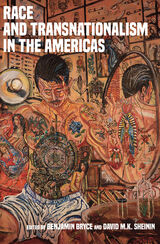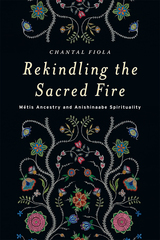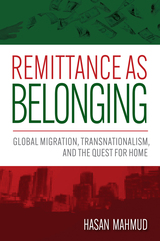101 books about Transnationalism and 5
start with R
101 books about Transnationalism and 5
101 books about Transnationalism
5 start with R start with R
5 start with R start with R

Race and Transnationalism in the Americas
Benjamin Bryce and David M. K. Sheinin
University of Pittsburgh Press, 2021
National borders and transnational forces have been central in defining the meaning of race in the Americas. Race and Transnationalism in the Americas examines the ways that race and its categorization have functioned as organizing frameworks for cultural, political, and social inclusion—and exclusion—in the Americas. Because racial categories are invariably generated through reference to the “other,” the national community has been a point of departure for understanding race as a concept. Yet this book argues that transnational forces have fundamentally shaped visions of racial difference and ideas of race and national belonging throughout the Americas, from the late nineteenth century to the present. Examining immigration exclusion, indigenous efforts toward decolonization, government efforts to colonize, sport, drugs, music, populism, and film, the authors examine the power and limits of the transnational flow of ideas, people, and capital. Spanning North America, Central America, South America, and the Caribbean, the volume seeks to engage in broad debates about race, citizenship, and national belonging in the Americas.
[more]

Reclaiming Diasporic Identity
Transnational Continuity and National Fragmentation in the Hmong Diaspora
Sangmi Lee
University of Illinois Press, 2024
The Hmong diaspora radiates from Southeast Asia to include far-flung nations like the United States, New Zealand, and Argentina. Sangmi Lee draws on the concept of diasporic identity to explore the contemporary experiences of Hmong people living in Vang Vieng, Laos, and Sacramento, California. Hmong form a sense of belonging based on two types of experiences: shared transnational cultural and social relations across borders; and national differences that arise from living in separate countries. As Lee shows, these disparate influences contribute to a dual sense of belonging but also to a transnational mobility and cultural fluidity that defies stereotypes of Hmong as a homogenous people bound to one place. Lee’s on-the-ground fieldwork lends distinctive detail to communities and individuals while her theoretically informed approach clarifies and refines what it means when already hybrid and dynamic identities become diasporic.
In-depth and interdisciplinary, Reclaiming Diasporic Identity blends ethnography and history to provide a fresh consideration of Hmong life today.
[more]

Redefining Japaneseness
Japanese Americans in the Ancestral Homeland
Yamashiro, Jane H
Rutgers University Press, 2017
There is a rich body of literature on the experience of Japanese immigrants in the United States, and there are also numerous accounts of the cultural dislocation felt by American expats in Japan. But what happens when Japanese Americans, born and raised in the United States, are the ones living abroad in Japan?
Redefining Japaneseness chronicles how Japanese American migrants to Japan navigate and complicate the categories of Japanese and “foreigner.” Drawing from extensive interviews and fieldwork in the Tokyo area, Jane H. Yamashiro tracks the multiple ways these migrants strategically negotiate and interpret their daily interactions. Following a diverse group of subjects—some of only Japanese ancestry and others of mixed heritage, some fluent in Japanese and others struggling with the language, some from Hawaii and others from the US continent—her study reveals wide variations in how Japanese Americans perceive both Japaneseness and Americanness.
Making an important contribution to both Asian American studies and scholarship on transnational migration, Redefining Japaneseness critically interrogates the common assumption that people of Japanese ancestry identify as members of a global diaspora. Furthermore, through its close examination of subjects who migrate from one highly-industrialized nation to another, it dramatically expands our picture of the migrant experience.
[more]

Rekindling the Sacred Fire
Métis Ancestry and Anishinaabe Spirituality
Chantal Fiola
University of Manitoba Press, 2015
The Haudenosaunee, more commonly known as the Iroquois or Six Nations, have been one of the most widely written about Indigenous groups in the United States and Canada. But seldom have the voices emerging from this community been drawn on in order to understand its enduring intellectual traditions. Rick Monture’s We Share Our Matters offers the first comprehensive portrait of how the Haudenosaunee of the Grand River region have expressed their long struggle for sovereignty in Canada. Through careful readings of more than two centuries of letters, speeches, ethnography, poetry, fiction, nonfiction, and film, Monture argues Haudenosaunee core beliefs have remained remarkably consistent and continue to inspire ways to address current social and political realities.
[more]

Remittance as Belonging
Global Migration, Transnationalism, and the Quest for Home
Hasan Mahmud
Rutgers University Press, 2025
Remittance as Belonging: Global Migration, Transnationalism, and the Quest for Home argues that migrant remittances express their sense of belonging and connectedness to their home country of origin, making an integral part of both migrants’ ethnic identity and sense of what they call home. Drawing on three and a half years of ethnographic fieldwork with Bangladeshi migrants in Tokyo and Los Angeles, Hasan Mahmud demonstrates that while migrants go abroad for various reasons, they do not travel alone. Although they leave behind their families in Bangladesh, they move abroad essentially as members of their family and community and maintain their belonging to home through transnational practices, including remittance-sending. By conceptualizing remittance as an expression of migrants’ belonging, this book presents detailed accounts of the emergence, growth, decline, and revival of remittances as a function of transformations in migrants’ sense of belonging to home.
[more]
READERS
Browse our collection.
PUBLISHERS
See BiblioVault's publisher services.
STUDENT SERVICES
Files for college accessibility offices.
UChicago Accessibility Resources
home | accessibility | search | about | contact us
BiblioVault ® 2001 - 2024
The University of Chicago Press









